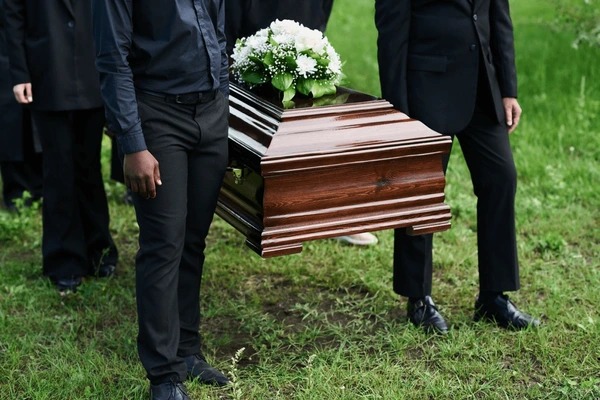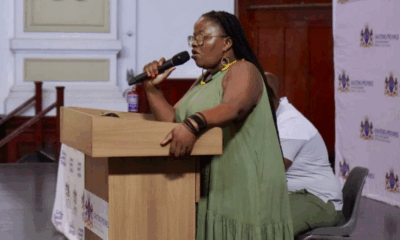Best of Johannesburg
What Happens After a Public Official Dies Under Investigation

The death of a public official does not mean the files close
Imagine a senior public official in South Africa is under investigation for alleged malfeasance or corruption and then passes away. What happens to the criminal case? What about the assets? And how does the state ensure accountability? These are questions that many South Africans raise when high-profile figures die while things are still unresolved. The short answer: the personal criminal case ends, but the broader inquiry and financial recovery can continue.
Why criminal charges stop with death
In South African law, the principle is clear: criminal liability is personal. Once the individual dies, any active or potential charges against them are terminated. You cannot prosecute someone who is deceased.
So, if the official had been indicted or was facing trial, those proceedings would formally abate. It’s not merely a pause; it ends because the person is no longer subject to the court’s sanction. This means any arrest warrants are cancelled and prosecutions cannot continue in their name. This is consistent with legal doctrine.
But the investigation doesn’t have to stop
Even though the person who was the subject of the investigation has died, the state’s focus often shifts rather than disappears. Investigative agencies such as the Special Investigating Unit, the Public Protector, or the South African Police Service may continue to:
-
identify accomplices or co-conspirators who may still face criminal liability
-
uncover the full scale of wrongdoing in the agency, department or municipality where the official served
-
gather evidence that may support civil claims against the deceased official’s estate or other beneficiaries of misconduct
So while the individual’s prosecution ends, accountability and transparency efforts often remain very much alive.
Civil and asset-recovery efforts pick up the baton
One important area that continues unabated is the recovery of state assets. Even though you cannot convict the deceased, the government can still pursue civil actions against their estate or those who benefited from corrupt activity. In effect, the focus moves from punishment to restitution.
In practical terms, this means the Master of the High Court is notified of the estate, claims by state entities are lodged, and steps are taken to seize or repurpose ill-gotten assets.
Internal, ethics, or administrative probes are a different story
Investigations by internal ethics offices or the Public Protector are not strictly criminal prosecutions. When an official under such inquiry dies, those investigations may either be concluded or they may continue, depending on their scope. If the investigation was solely about that official’s conduct and the death makes further action meaningless, it may be closed. But if it uncovers wider systemic failures, a network of wrongdoing, or recommends changes in public-service conduct, it can carry on. In other words, the death might shift the investigation’s emphasis from personal misconduct to institutional reform.
When an inquest becomes necessary
If the death occurred in suspicious circumstances, was unnatural, or the individual died while in custody, the Inquests Act 58 of 1959 comes into play. Under this Act, a magistrate may hold an inquest to determine the cause of death, whether an act or omission by another person may be involved, and to ensure public transparency. An inquest is not a criminal trial and does not find someone guilty, but it establishes facts and may inform criminal or civil follow-up.
What this means for South Africans watching
For citizens, the death of a public official under investigation can raise concerns about impunity and whether justice truly prevails. But the system retains significant tools: civil recovery can continue; institutional oversight can draw lessons; transparency is still required. Social media and public reaction often reflect frustration: if the face of alleged wrongdoing passes away, does that mean no one is punished? The answer is that punishment in the criminal sense ends, but accountability in other forms remains.
In a democratic society, the key is that the story does not simply conclude with a funeral. The narrative shifts: who else was involved? What happened to public funds? Did the institution allow it? And what steps will prevent a repeat?
A fresh angle for 2025
In the past few years, South African investigative bodies have emphasised that the death of a suspect is not an excuse to halt recovery efforts. The realignment of cases from criminal to civil spheres is now more rigorous. For instance, the Special Investigating Unit, in public statements, has indicated that the estates of deceased accused persons will be pursued for the recovery of state losses. Moreover, transparency demands that the findings of inquests or other probes be made public, even if prosecution is impossible.
For South Africans, the takeaway is this: the system is not perfect, but the death of an official does not mark the end of accountability. It’s a stress test of how robust our oversight institutions are.
Also read: When Social Media Fuels Bullying: What South African Parents Can Actually Do
Follow Joburg ETC on Facebook, Twitter, TikT
For more News in Johannesburg, visit joburgetc.com
Featured Image: Shutterstock



























